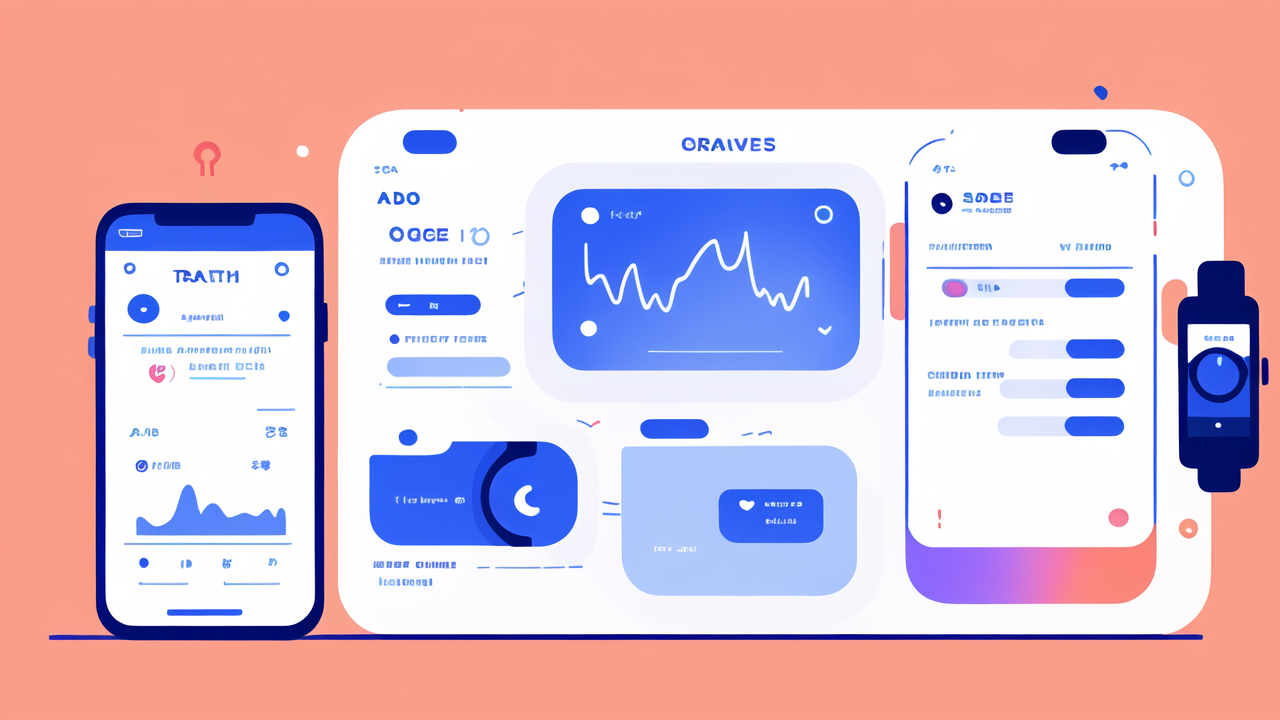Understanding the Importance of Fitness Tracking
The Role of Fitness Trackers in Modern Lifestyles
Fitness trackers have become essential tools in our daily lives. They help us monitor our health and stay active. These devices track steps, calories, and sleep patterns. They motivate us to reach our fitness goals and improve our overall well-being.

Many people use fitness trackers to set and achieve personal health targets. They provide real-time data on physical activity and encourage us to move more. Trackers also remind us to stand up and stretch after long periods of sitting.
Fitness trackers have changed how we approach exercise and health. They make it easy to track progress and share achievements with friends. This social aspect adds fun and competition to fitness routines.
Key Metrics to Track for Health and Wellness
Fitness trackers measure various health metrics. Here are some key ones to focus on:
- Steps taken: This shows your daily activity level.
- Heart rate: It helps monitor cardiovascular health.
- Sleep duration and quality: Good sleep is crucial for overall health.
- Calories burned: This helps with weight management.
- Active minutes: It tracks intense physical activity.
- Distance traveled: Useful for runners and cyclists.
- Stress levels: Some trackers measure stress through heart rate variability.
These metrics give a complete picture of your health. They help you make informed decisions about your lifestyle. Regular tracking can reveal patterns and areas for improvement in your health routine.
The Best Fitness Trackers of 2023
Cutting-Edge Technologies in Fitness Tracking Devices
Fitness trackers have advanced greatly in recent years. They now use innovative technologies to provide accurate data. Here are some cutting-edge features in modern fitness trackers:

- GPS tracking: For precise location and distance measurement.
- ECG monitoring: To detect irregular heart rhythms.
- Blood oxygen measurement: Important for overall health assessment.
- Skin temperature sensors: Can help detect early signs of illness.
- Advanced sleep tracking: Measures different sleep stages for better rest.
These technologies make fitness trackers more than just step counters. They're now comprehensive health monitoring devices. Many can even detect falls and send emergency alerts.
Some trackers use AI to provide personalized health insights. They can suggest workout plans based on your fitness level and goals. This makes them valuable tools for both beginners and seasoned athletes.
How Fitness Trackers are Revolutionizing Healthcare
Fitness trackers are changing how we approach healthcare. They provide continuous health data, which can be shared with doctors. This helps in early detection of health issues and better treatment planning.
Many healthcare providers now use data from fitness trackers. It helps them monitor patients with chronic conditions. For example, heart patients can track their heart rate and activity levels at home.
Fitness trackers also promote preventive healthcare. They encourage users to stay active and maintain healthy habits. This can lead to reduced healthcare costs and improved overall public health.
Insurance companies are taking notice too. Some offer incentives for using fitness trackers. They reward users who meet certain activity goals with lower premiums.
Research institutions use data from fitness trackers for large-scale health studies. This helps in understanding population health trends and developing new treatments.
Evaluating and Selecting the Right Fitness Tracker
Criteria for Choosing Your Fitness Tracker
Choosing the right fitness tracker depends on your needs and lifestyle. Here are key factors to consider:

- Battery life: Longer battery life means less frequent charging.
- Water resistance: Important for swimmers or those who sweat a lot.
- Compatibility: Check if it works with your smartphone.
- Display: Consider size and readability.
- Comfort: It should be comfortable for all-day wear.
- Additional features: Like music control or contactless payments.
- Price: Determine your budget and find the best value.
Also, think about the specific metrics you want to track. Some trackers focus on running, while others are better for general fitness. Consider your main activities and choose accordingly.
Read reviews and compare different models before making a decision. Look for trackers with accurate sensors and reliable syncing with apps.
The Future of Fitness Tracking: Trends and Innovations
The future of fitness tracking looks exciting. We can expect even more advanced features in coming years. Here are some trends to watch out for:
- Non-wearable trackers: Like smart mirrors or floor mats.
- Integration with smart home devices: For a more connected health experience.
- Advanced health monitoring: Including blood pressure and glucose levels.
- Emotional health tracking: Monitoring stress and mood patterns.
- AR and VR integration: For immersive workout experiences.
We might see trackers that can predict health issues before they occur. This could revolutionize preventive healthcare. Personalization will also improve, with AI providing more tailored health advice.
As technology advances, fitness trackers will become more accurate and useful. They'll play a bigger role in our overall health management. The line between fitness trackers and medical devices may blur in the future.




Leave a comment
This site is protected by hCaptcha and the hCaptcha Privacy Policy and Terms of Service apply.